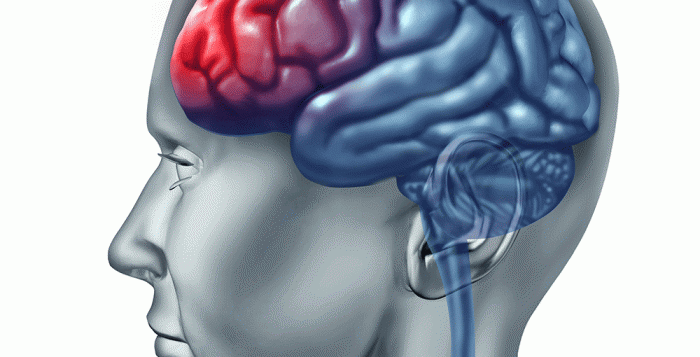TBI
The Center Square: Brain Injury Assistance Needs More Awareness, Funding
Human Services Committee to Hold Second Info Meeting on Treatment & Support for TBI
Tomorrow, February 5, the House Human Services Committee will hold a second informational meeting on the treatment and support for Traumatic Brain Injuries (TBI). The meeting will be held at 9:00 am in Room G-50 in the Irvis Office Building of the Capitol.
The hearing will include testimony to be provided by the PA Department of Health, NeuroRestorative, Woods Services, Penn State Health, and Penn State College of Medicine. Following the testimony from the panelists, they will receive questions from the members of the Committees.
The meeting will be livestreamed, which can be accessed from the Human Services website here.
Urgent Request for BI Information From Legislative Leadership
As was shared in the RCPA Alert sent on Tuesday, January 28, the House Human Services and Insurance Committees held a joint informational meeting on January 29 on Traumatic Brain Injury (TBI): Care Needs and Coverage Options, where testimony was provided by RCPA, OLTL, Success Rehabilitation, BIAPA, and insurers.
Following the hearing, leadership from the House Human Services Committee has requested additional information from BI providers. Please review the questions below and provide responses to Melissa Dehoff by close of business Monday, February 3.
- Is your organization accredited by CARF as a Brain Injury Residential Rehabilitation Program (Adult) or Community Housing?
- Do you provide other non-residential services through the waiver? If so, please list them.
The important message to share is that we have the legislators’ attention! Things are moving very quickly; there are many meetings, calls, and ongoing communications with leadership in the legislature as we enter the key phase of budget negotiations.
It is critical that we have full participation in providing this information from every single BI provider/program. If we do not provide responses from 100% of our BI members, it could have an impact on funds being allocated to us in the budget.
Please contact Melissa Dehoff with questions and your responses.
Human Services & Insurance Committees to Hold Joint Informational Meeting on TBI
Tomorrow, January 29, the House Human Services and Insurance Committees will hold a joint informational meeting on Traumatic Brain Injury (TBI): Care Needs and Coverage Options. The meeting is scheduled at 9:00 am in Room G-50 in the Irvis Office Building of the Capitol.
The hearing will include three separate panels that will include testimony to be provided by:
- Richard Edley, President & CEO, RCPA;
- Joanne Tangney, President & CEO, Success Rehabilitation;
- Juliet Marsala, Deputy Secretary, Office of Long-Term Living (OLTL);
- Drew Nagele, Brain Injury Association of Pennsylvania (BIAPA);
- Tim Law, Chief Medical Officer, Highmark; and
- Jonathan Greer, President, Insurance Federation of Pennsylvania.
Following the testimonies from the panelists, they will receive questions from the members of the Committees.
The meeting will be livestreamed, which can be accessed from the Human Services website here.
For additional information, please view the agenda here.
BIAA Event to Focus on Brain Injury as a Chronic Health Condition
The Brain Injury Association of America (BIAA) will be conducting an event via Zoom that will focus on the recent announcement from the Centers for Medicare and Medicaid Services (CMS) that formally designated brain injury as a chronic health condition. The session, “CMS Chronic Condition Designation — What it Means for You,” will be held on September 24, 2024, at 12:00 pm.
Panelists for this event include:
- Denver Supinger, BIAA’s Director of Advocacy and Government Relations;
- Karen Kimsey, former Director of the Department of Medical Assistance Services;
- Paul Bosworth, brain injury survivor and member of BIAA’s Brain Injury Survivors Council; and
- Darcy Keith, brain injury survivor and member of BIAA’s Brain Injury Survivors Council.
To participate in the event, please register here.
Lehigh Valley News: Brain Injury Conference Free to Those in the Lehigh Valley
CMS Officially Recognizes Brain Injury as a Chronic Condition
The Centers for Medicare and Medicaid Services (CMS) has recognized traumatic brain injury (TBI) as a chronic health condition. TBI has been added to CMS’ list of chronic conditions for chronic special needs plans (C-SNPs) through its Medicare Advantage program, effective for the January 2025 plan year.
The addition of TBI to the list of chronic conditions was included in a final rule published by CMS in the June 2024 Federal Register, which will become effective on January 1, 2025. Obtaining official recognition of TBI as a chronic condition from CMS is a significant step forward and provides validation that brain injury should be more broadly recognized as a chronic condition.
In March 2024, the Brain Injury Association of America (BIAA) published a position paper requesting CMS, along with the Centers for Disease Control and Prevention (CDC), to designate brain injury as a chronic condition. Formal recognition, the paper states, has the potential to provide several advantages for people with brain injury, including the allocation of additional public health resources to focus on the lifelong effects of brain injury as well as health insurance plans, primarily Medicare and Medicaid, providing additional benefits and other supports as they do for other chronic health conditions. The greatest benefit, however, would be an increase in public awareness of the long-term effects of brain injury that affect the estimated 5 million Americans with a brain injury-related disability.
BIAA will be hosting a live Question and Answer (Q&A) session in the near future to discuss these changes and future tools and resources to assist survivors and their loved ones advocate for further expanding coverage.
ACL TBI Technical Assistance & Resource Center Releases June Webinar Recording & Slides
The resources for the Administration for Community Living’s (ACL) Traumatic Brain Injury (TBI) Technical Assistance and Resource Center’s (TARC) June 2024 webinar Cognitive Impairment in Substance Use Disorder Treatment: Neurologic Informed Care are now available and posted on the ACL website. The resources posted include the webinar recording (captioned and available on YouTube) and webinar slides.
During the webinar, John D. Corrigan, PhD, ABPP, introduced the new American Society of Addiction Medicine (ASAM) expectations for the treatment of persons with cognitive impairment, including “Neurologic Informed Care,” as described in the new criteria. Implications for the identification of people in treatment who have a history of brain injury, as well as the use of accommodations to make treatment more accessible, were discussed.
TBI Advisory Board Renamed; Next Meeting on Feb. 2, 2024
The PA Department of Health (DOH) will be publishing two notices in the Pennsylvania (PA) Bulletin on January 20, 2024, regarding the Traumatic Brain Injury (TBI) Advisory Board.
The first notice announces the renaming of the TBI Advisory Board to the Brain Injury Advisory Board:
The Traumatic Brain Injury (TBI) Advisory Board (Board) was instituted in August 2001 by the Secretary of Health as a requirement of section 1252 the Federal TBI Act of 1996 (42 U.S.C. § 300d-52) and the Health Resources and Services Administration (HRSA) Federal TBI Planning Grant, presently known as the Administration for Community Living (ACL) TBI State Partnership Program Grant. There is no requirement for the Board to be specifically called the TBI Advisory Board. Until 2021, the grant stipulated that the Board must have 50% of its voting members exclusively represent individuals with a TBI. With this limited scope, individuals with a nontraumatic brain injury (nonTBI) could not be considered as voting members. It created gaps in representation and understanding, hindering the Board’s ability to address the diverse needs of the broader brain injury community. As awareness of nonTBI evolved and service needs increased for individuals with a nonTBI, ACL expanded the scope of the Board to allow all individuals with nonTBI brain injury to serve as voting members. On August 4, 2023, the Board convened and voted unanimously to change its name to the Brain Injury Advisory Board. This adjustment underscores a strategic initiative toward inclusivity. It acknowledges the various origins of brain injuries and aims to bridge the current gap in representation. The change also aligns the Board’s nomenclature with its commitment to comprehensive advocacy, facilitating a more nuanced understanding and responsive approach to the diverse challenges encountered by individuals affected by all forms of acquired brain injuries.
The second notice provides information about the next board meeting. The Brain Injury Advisory Board will hold their next public meeting on February 2, 2024, from 10:00 am – 3:00 pm in person at the Pennsylvania Training and Technical Assistance Network (PaTTAN), 6340 Flank Drive, Harrisburg, PA 17112, in the Cambria conference room.
Meeting materials will be sent out before the meeting and will also be available on their website and at the meeting location. Questions about the meeting should be directed to Nicole Johnson.
The DOH’s Head Injury Program (HIP) strives to ensure that eligible individuals who have a brain injury receive high quality rehabilitative services aimed at reducing functional limitations and improving quality of life. The Board assists the DOH in understanding and meeting the needs of persons living with acquired brain injuries, both traumatic and nontraumatic, and their families. This quarterly meeting will provide updates on a variety of topics including the number of people served by HIP. In addition, meeting participants will discuss budgetary and programmatic issues, community programs relating to traumatic and nontraumatic brain injuries, and available advocacy opportunities.

















